Baci di dama, literally meaning “lady’s kisses,” are small Italian hazelnut cookies sandwiched together with chocolate–the “kiss,” so to say. Using no eggs the cookies are crisp and crumbly like shortbread with a rich and nutty flavor. Once filled with chocolate, they’re irresistibly delicious and comforting.
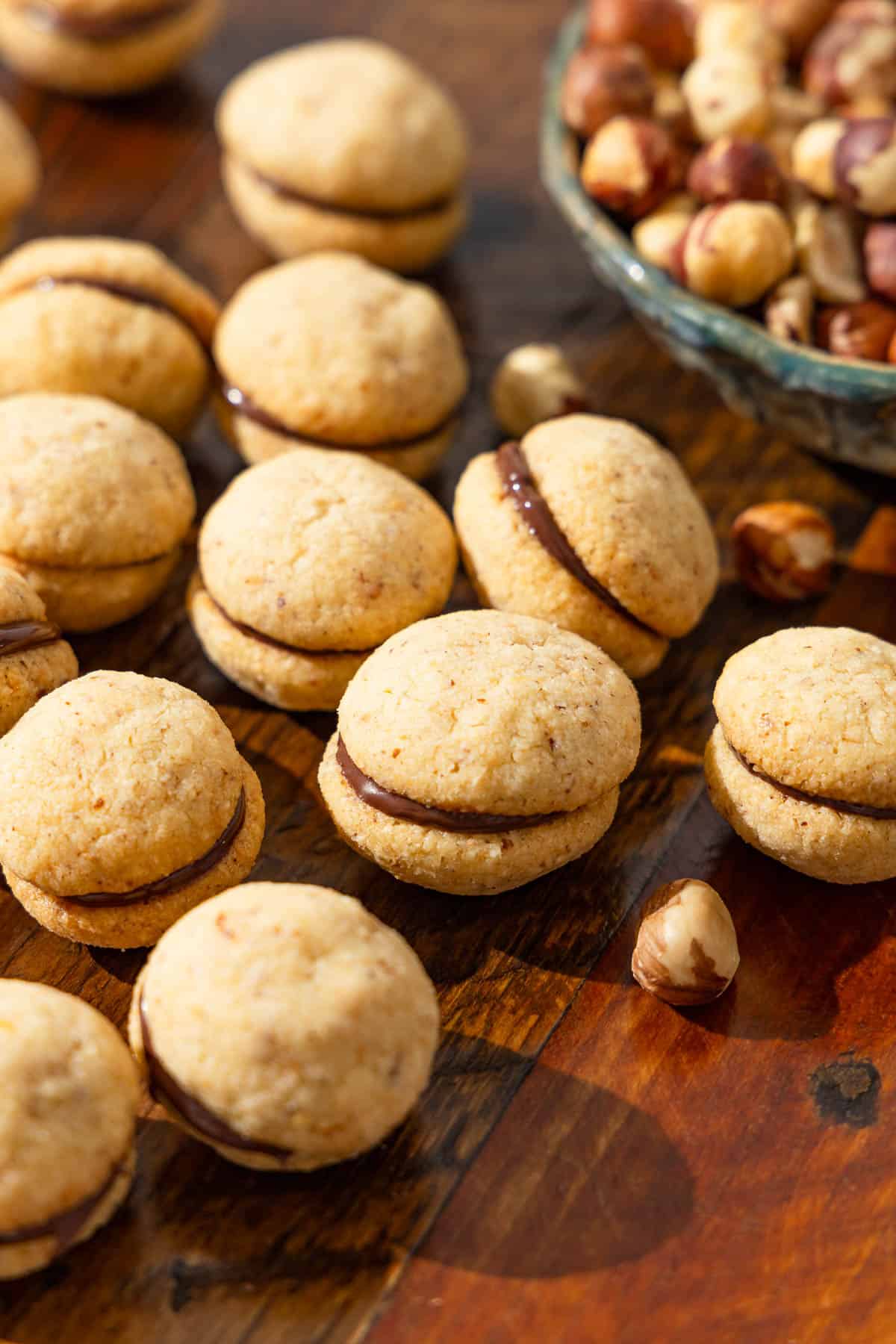
This baci di dama recipe is my favorite way to make these delicate bite-sized cookie sandwiches: The dough can be mixed together quickly in the food processor, with fewer dishes, less chilling time, and extra tender cookies.
Like Italian Pignoli, Egyptian Ghorayebah or Greek Melomakarona cookies, their small size makes them the ideal snack with coffee or a sweet bite after dinner. And, this recipe makes quite a lot–about four dozen cookies–so there’s plenty for sharing in a cookie tray or to give out as a holiday gift.
The first step is to toast the hazelnuts, which brings out their rich, buttery flavor. The nuts are finely ground, combined with flour, vanilla, butter, and a touch of lemon zest for a decadent cookie with an irresistibly crumbly, airy texture that melts as soon as you take a bite.
This hazelnut cookie recipe is a bit of a project, as it requires about an hour of hands-on time between shaping the cookies and assembling them with melted chocolate. I find repetitive tasks in the kitchen like this to be oddly comforting, but it’s also a good time to call on some help from another set of hands. This recipe also makes for a fun family kitchen project on a dreary winter day.
Table of Contents
- Food Stories: The Land of Chocolate and Hazelnuts
- Baci di Dama Ingredients
- The Best Chocolate for Sandwiching
- How to Make Baci di Dama
- How Do You Remove Hazelnut Skins?
- Variations
- How to Make These Hazelnut Cookies Without a Food Processor
- How to Serve Baci di Dama
- Cookies From Around The Mediterranean Sea
- Baci Di Dama (Italian Chocolate Hazelnut Cookies) Recipe
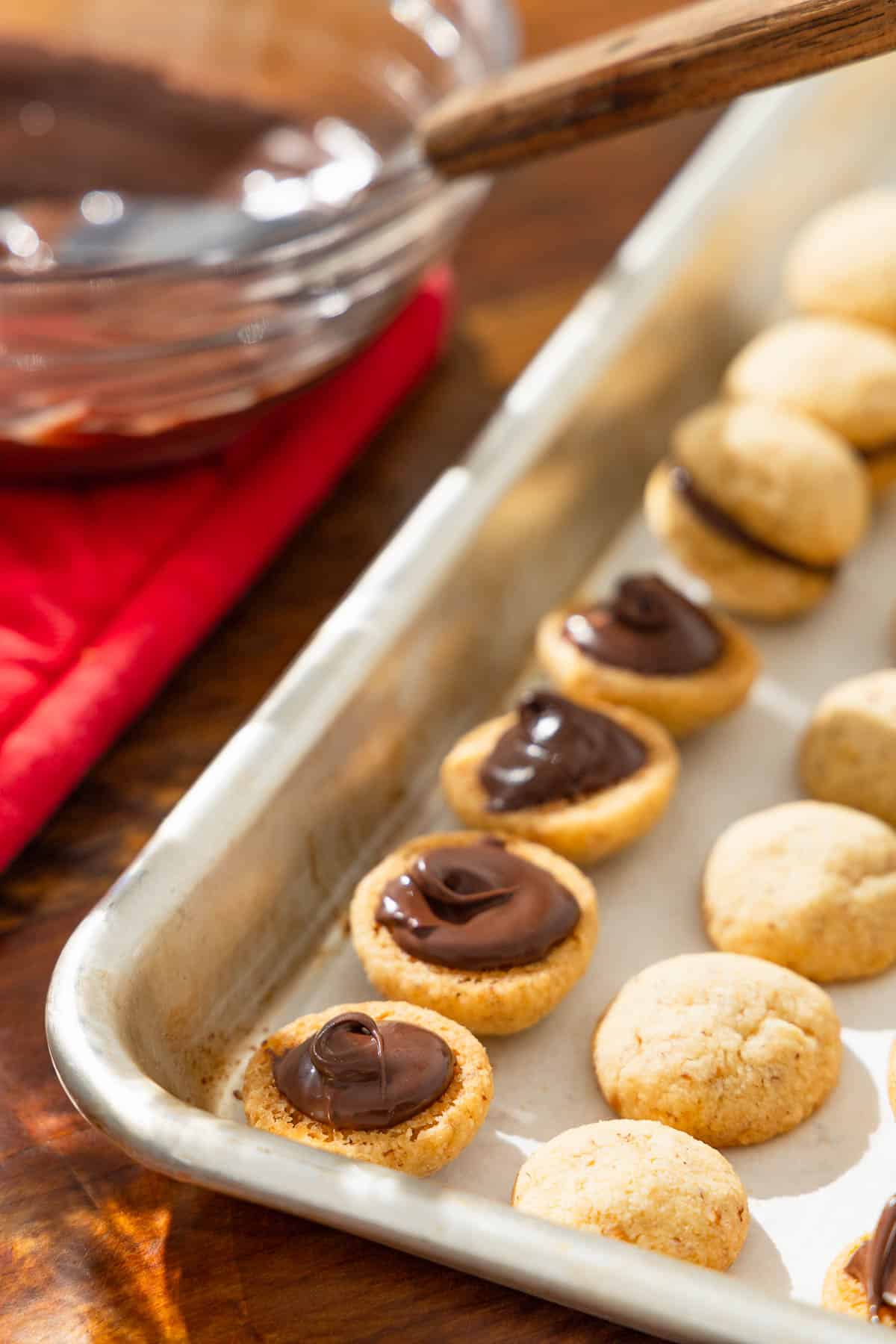
Food Stories: The Land of Chocolate and Hazelnuts
I first tasted baci di dama when one of my friends, who comes from a small mountain town in Piedmont, Italy, offered to take me on a tour of her hometown, the staggering Italian Alps, and the city of Turin. In a stroke of luck, our trip coincided with Cioccolatò, Turin’s annual chocolate festival. The impressive Piazza San Carlo was filled with dozens of booths selling artisan chocolate.
Piedmont is renowned for its chocolate production, and it also happens to grow some of the best hazelnuts in the world. It’s no surprise that Turin, its capital city, is the birthplace of gianduja, a chocolate and hazelnut bar originally created to stretch chocolate with cheap local hazelnuts when importing cocoa became too expensive. It now seems impossible to separate the two.
At the festival, Piedmont’s chocolate and hazelnut tradition was obvious. There was gianduja, gianduiotto, and chocolate-covered hazelnuts at every booth. Among them was another Piedmont invention featuring hazelnuts and chocolate: baci di dama. The first taste blew my mind, but I have loved snacking on these incredible cookies ever since, standing in a Piazza with a view of the Italian alps or simply in my kitchen enjoying an afternoon coffee.
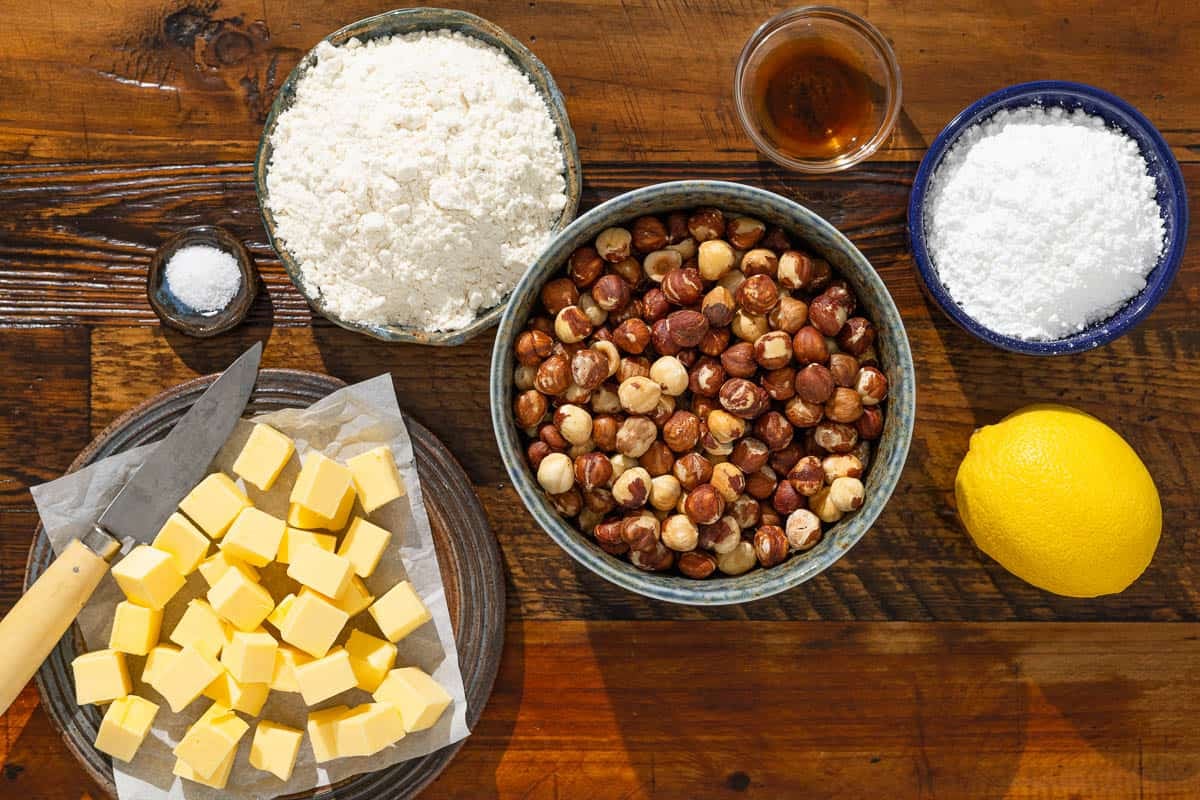
Baci di Dama Ingredients
For such flavorful hazelnut cookies, baci di dama have a surprisingly modest ingredient list—just five main ingredients plus a boost from vanilla, lemon zest, and a pinch of salt.
- Hazelnuts: Hazelnuts have a beautiful, woodsy cocoa flavor that becomes especially pronounced after roasting, which increases the number and intensity of flavor compounds. Whatever you do, don’t skip the roasting step—untoasted hazelnuts have a mild, almost grassy flavor.
- Powdered sugar: I prefer powdered sugar instead of granulated sugar when I’m making cookies that require a short texture. It incorporates into the butter easily, doesn’t get gritty like granulated sugar sometimes can, and also includes some cornstarch. Cornstarch adds structure without toughening gluten, ensuring the cookies are tender and don’t spread too much in the oven.
- All-purpose flour: All-purpose flour has just the right amount of gluten to hold these cookies together without making them tough. With no eggs to provide structure and ground hazelnuts for half the dry ingredients, it needs the sturdiness of all-purpose flour instead of pastry flour, which could make them too crumbly.
- Salt: Salt helps to bring out the other flavors in the cookies.
- Unsalted butter: Use cold butter cut into 1/2-inch cubes and work the butter into the dry ingredients with a food processor. This mixing method eliminates the need to chill the dough and limits gluten development.
- Vanilla extract: Vanilla complements the other flavors in these cookies. You could substitute dark rum instead.
- Lemon zest: Just a little bit of lemon zest brightens up these cookies. You can use orange zest or leave it out if preferred.
- Chocolate: I prefer 60 to 70 percent cacao, which balances the flavor intensity of the hazelnuts. Milk chocolate would be too sweet, and dark chocolate would be too bitter and overpower the hazelnut.

The Best Chocolate for Sandwiching
Semi-sweet or bittersweet chocolate works best in these Baci di Dama cookies. I prefer darker chocolate that’s made with 60 to 70 percent cacao.
If you prefer a sweeter taste, look for semi-sweet chocolate in the range of 50 to 60 percent cacao. Chocolate and hazelnut are both intense flavors, so to find a balance, it’s best to match the bittersweet flavor of hazelnut.
Milk chocolate would be too sweet, and dark chocolate with higher than 70% cacao could be too bitter, overpowering the hazelnut.
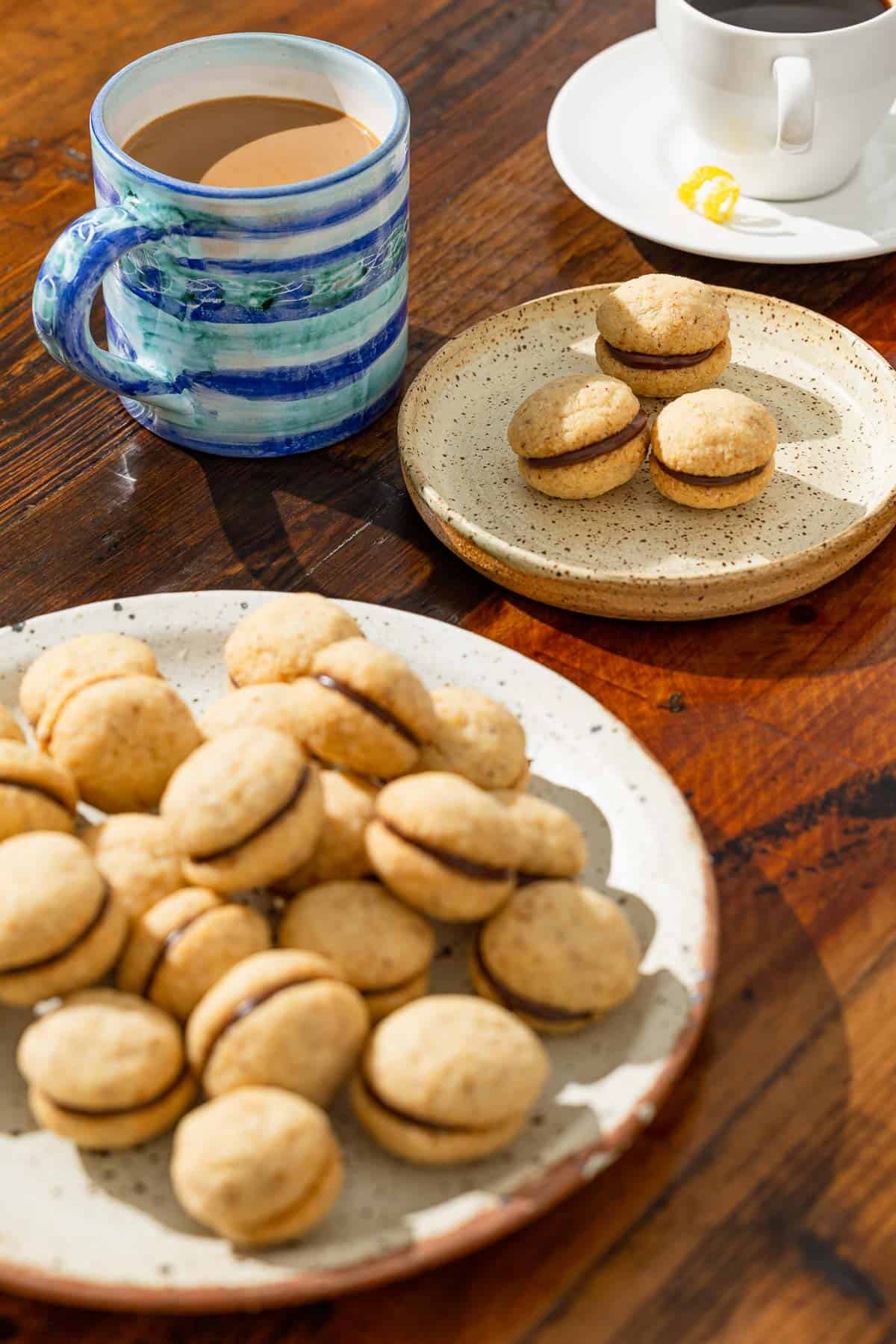
How to Make Baci di Dama
Shaping baci di dama reminds me of the technique for rolling gnocchi, but a little easier since the dough is less sticky and delicate. Here’s how:
Make the Hazelnut Cookie Batter
- Preheat the oven. Arrange racks in the bottom and upper third of the oven. Preheat the oven to 350°F. Line 2 baking sheets with parchment paper. Cut 1/2 cup of cold butter into 1/2-inch cubes and return to your fridge to keep cold.
- Roast the hazelnuts. Spread 1 cup of hazelnuts on one of the baking sheets and bake for 10 minutes, until browned and the whole kitchen smells nutty.
- Remove the skins (mostly). While the hazelnuts are still warm but cool enough to handle, transfer them onto a clean, damp tea towel. Wrap them in the towel and rub them together vigorously for 1 to 2 minutes to remove as much of the skins as possible. (A small amount of leftover skins is fine–it will give your cookie a nice rustic look.)
- Grind the hazelnuts. Transfer the peeled hazelnuts to a food processor. Measure out 3/4 cup of powdered sugar, then scoop out 2 tablespoons of the sugar to add to the hazelnuts. Process the hazelnuts and 2 tablespoons of sugar until they’re finely ground, 1 to 2 minutes.
- Mix the dry ingredients. Add the remaining sugar, along with 1 cup flour, and 1/4 teaspoon salt. Process until the dry ingredients are evenly distributed, about 1 minute. You may need to pause and use a rubber spatula to scrape the bottom corner of the processor bowl.
- Make the dough. Add the cubes of cold butter, along with 1 teaspoon of vanilla extract, and lemon zest. Pulse a few times to break up and distribute the butter, then process until it begins to clump together into a cohesive dough, about 30 seconds.
Shape the Cookies
- Portion the dough. Dump the dough onto a clean work surface. Gently knead the dough a few times if there are still some dry bits of flour. Divide the dough into 4 equal pieces, about 4-ounces (115g) each.
- Shape the dough. Gently form each piece into a 1-inch diameter log about 12-inches long. If the log starts to break apart, gently press it back into shape. The dough shouldn’t stick to the counter, but if it does, dust lightly with flour.
- Slice into pieces. Use a bench scraper or a sharp knife to cut each log into 24 1/2-inch pieces.
- Shape the cookies. Form piece into a ball with the palms of your hands. Space them 1-inch apart on the baking sheets, reusing the pan and parchment from roasting the hazelnuts. You should be able to fit 48 cookies per pan.
- Bake. Bake for 8 minutes, then rotate the pans back to front and switch the pans between the top and bottom oven racks. Continue baking until the tops of the cookies are dry and the edges are just starting to turn golden, about 6 minutes more. Let the cookies cool in the pan to room temperature.
Fill, Press, and Enjoy!
- Melt the chocolate. Add 4-ounces of chopped chocolate to a microwave-safe bowl. Microwave the chocolate in 30-second intervals, stirring with a rubber spatula each time, until the chocolate is melted and smooth.
- Assemble. Dollop about 1/2 teaspoon of chocolate on the bottom of a cookie, then gently press another cookie on top to form a sandwich. The chocolate should spread right to the edges of the hazelnut cookies. Repeat with the rest of the cookies, pairing the cookie halves by shape and size.
- Rest and serve. Let the chocolate set until firm before serving, at least 15 minutes. The cookies will keep in an airtight container at room temperature for up to 1 week or layer between sheets of parchment and freeze for up to 3 months.
How Do You Remove Hazelnut Skins?
I don’t mind the skins on hazelnuts, especially when the nuts are ground finely, like in these baci di dama. I like the rustic, speckled appearance the skins give the hazelnut cookies. So, the quick tea towel method works well enough for me, which removes the skins by rubbing them in a towel just after they’re roasted.
If you want a uniform look, there is a way to remove the skins completely:
- Blanch the hazelnuts. Before toasting them, boil them in 2 cups of water mixed with 3 tablespoons of baking soda for 3 minutes. Use a slotted spoon to transfer the hazelnuts to a bowl of ice water.
- Peel, then roast. Drain the water and use a towel to slip or wipe away the skins. Dry, then spread on a sheet pan and toast in a 350°F oven until fragrant and golden, about 10 minutes.
You can also buy blanched hazelnuts, which will already be peeled. They tend to be pricey, but will save you some time and energy.
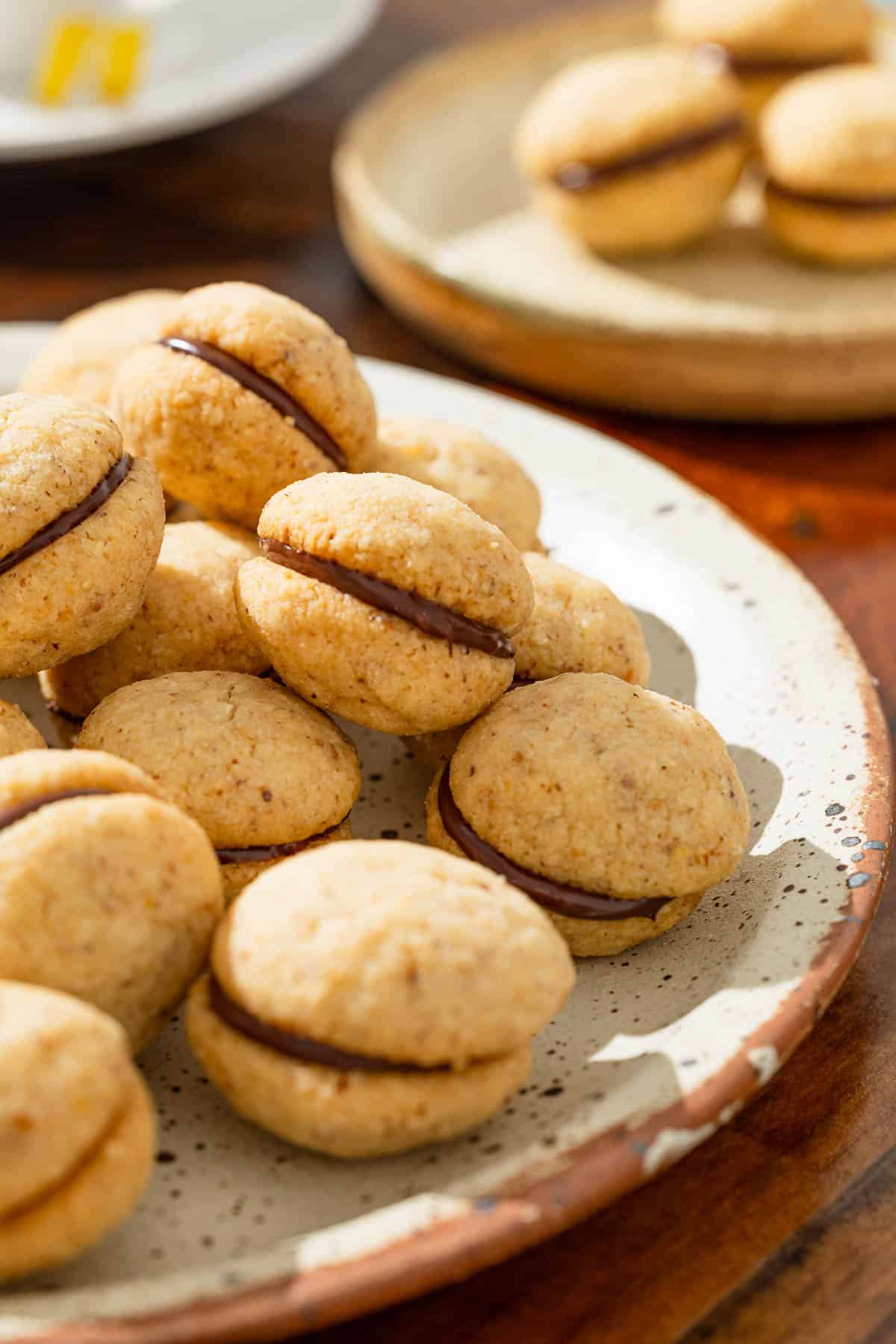
Variations
It’s hard to imagine messing with the already perfect pairing of hazelnut and chocolate, but you can make this recipe your own with extra chocolate, coffee, or a hint of spice:
- Double chocolate: Replace 1/4 cup of the all-purpose flour with Dutch-processed cocoa powder.
- Espresso powder: For a hint of coffee flavor, add 1/2 teaspoon of espresso powder with the dry ingredients.
- Zest and extract: Swap the lemon zest for orange zest or try a different variety like Meyer lemon or Blood Orange. You could swap the vanilla extract for the same amount or up to 1 tablespoon of dark rum.
- Baking spices: The toasty flavors in hazelnut and chocolate pair exceptionally well with baking spices. For a subtle touch of spice, try adding 1/2 teaspoon ground cinnamon, 1/4 teaspoon ground cardamom, or 1/2 teaspoon of a sweet baking spice mix such as a pumpkin spice blend or speculaas.

How to Make These Hazelnut Cookies Without a Food Processor
If you don’t have a food processor, you can make delicious baci di dama with a stand mixer or hand mixer. Instead of whole hazelnuts, opt for either 1 1/4 cups of hazelnut flour or almond flour. To make the hazelnut cookies with a stand mixer or hand mixer:
- Toast the nut flour for 5-7 minutes in a 350°F oven, like in this carrot cake recipe. Set aside to cool.
- Use room-temperature butter instead of cold butter. Beat the butter, powdered sugar, salt, zest, and vanilla extract on low speed until smooth. Add the cooled nut flour and all-purpose flour and mix on low speed just until the dough comes together.
- Wrap the dough in plastic and set it in the fridge to chill for 20 minutes before shaping the cookies. Bake as directed.
How to Serve Baci di Dama
Because these hazelnut cookies keep so well, I make a batch to treasure my afternoon coffee with a few cookies on the side all week long. Coffee, chocolate, and hazelnut are a classic combination that never fails to make my coffee break truly feel like a highlight of my day.
Apart from a coffee time snack, the hazelnut cookies make a wonderful dessert after dinner alongside an espresso, black tea, or a digestif of limoncello.
For a larger affair, you can put together a dessert tray of Italian cookies with baci di dama, jammy pizzicati, and crunchy biscotti. Or arrange a holiday cookie box to give out to dear friends.
Cookies From Around The Mediterranean Sea
Browse all Mediterranean recipes.
Visit Our Shop
Get The Mediterranean Dish Cookbook
More than 120 recipes for bright and flavorful Mediterranean diet-inspired meals.

Baci Di Dama (Italian Chocolate Hazelnut Cookies)

Ingredients
- 1 cup (140g) hazelnuts
- 3/4 cup (85g) powdered sugar, divided
- 1 cup (120g) all-purpose flour
- 1/4 teaspoon kosher salt
- 1/2 cup (113g) cold unsalted butter, cut into 1/2-inch cubes
- 1 teaspoon vanilla extract or dark rum
- 1 teaspoon lemon zest (about 1/2 lemon)
- 4 ounces (113g) semi-sweet or bittersweet chocolate (60 to 70% cacao), chopped
Instructions
- Preheat your oven. Arrange racks in the bottom and upper third of your oven, then preheat to 350°F. Line 2 baking sheets with parchment paper.
- Roast the hazelnuts. Spread the hazelnuts out on one of the prepared baking sheets and bake for 10 minutes, until browned and your whole kitchen smells nutty (leave your oven on, we’ll bake the cookies at the same temperature).
- Remove the hazelnuts’ skins. While the hazelnuts are still warm but cool enough to handle, transfer them to a clean, damp tea towel. Wrap them in the towel and rub them together vigorously for 1 to 2 minutes to remove as much of the skins as possible.
- Grind the hazelnuts. Transfer the hazelnuts to a food processor and discard the skins. Measure out the 3/4 cup of powdered sugar, then scoop out 2 tablespoons of the sugar to add to the hazelnuts. Process the hazelnuts and 2 tablespoons of sugar until they’re finely ground, 1 to 2 minutes.
- Mix the dry ingredients. Add the remaining sugar, flour, and salt. Process until the dry ingredients are evenly distributed, about 1 minute. You may need to pause and use a rubber spatula to scrape the bottom corner of the processor bowl.
- Make the dough. Add the cubes of butter, vanilla extract, and lemon zest to the dry ingredients. Pulse a few times to break up and distribute the butter, then process until the dough begins to clump together into a cohesive dough, about 30 seconds.
- Portion the dough. Dump the dough onto a clean work surface. Gently knead the dough a few times if there are still some dry bits of flour. Divide the dough into 4 equal pieces, about 4-ounces (115g) each.
- Shape the dough. Gently shape each piece into a 1-inch diameter log about 12-inches long. If the log starts to break apart, gently press it back into shape. The dough shouldn’t stick to the counter, but if it does dust lightly with flour.
- Shape the cookies. Use a bench scraper or a sharp knife to cut each log into 24 1/2-inch pieces. Form each piece into a ball with your hands. Space them 1 inch apart on the prepared baking sheets, reusing the pan and parchment from roasting the hazelnuts. You should be able to fit 48 cookies per pan.
- Bake. Bake for 8 minutes, then rotate the pans back to front and switch the pans between the top and bottom oven racks. Continue baking until the tops of the cookies are dry and the edges are just starting to turn golden, about 6 minutes more.
- Cool. Let the cookies cool in the pan to room temperature, about 30 minutes.
- Melt the chocolate. Add the chopped chocolate to a microwave-safe bowl. Microwave the chocolate in 30-second intervals, stirring with a rubber spatula each time, until the chocolate is melted and smooth.
- Assemble. Dollop about 1/2 teaspoon of chocolate on the bottom of a cookie, then gently press another cookie on top to form a sandwich. The chocolate should spread right to the edges of the cookies. Repeat with the rest of the cookies, pairing the cookie halves by shape and size.
- Rest and serve. Let the chocolate set until firm before serving, at least 15 minutes. The cookies will keep in an airtight container at room temperature for up to 1 week.
Notes
- Don’t worry about getting all the skins off the hazelnuts. A small amount of leftover skin gives the cookies a pleasantly rustic, speckled appearance.
- If you don’t have a microwave: Melt the chocolate in a heatsafe bowl over simmering water, stirring constantly.
- If you don’t have a food processor you can use a stand mixer or hand mixer. Substitute whole hazelnuts with 1 1/4 cups of hazelnut flour or almond flour.
- Toast the nut flour for 5-7 minutes in a 350°F oven, then set aside to cool.
- Use room-temperature butter instead of cold butter. Beat the butter, powdered sugar, salt, zest, and vanilla extract on low speed until smooth. Add the cooled nut flour and all-purpose flour and mix on low speed just until the dough comes together.
- Wrap the dough in plastic and set it in the fridge to chill for 20 minutes before shaping the cookies. Bake as directed.
- Visit our shop to browse quality Mediterranean ingredients including olive oils, honey, jams, and spices.



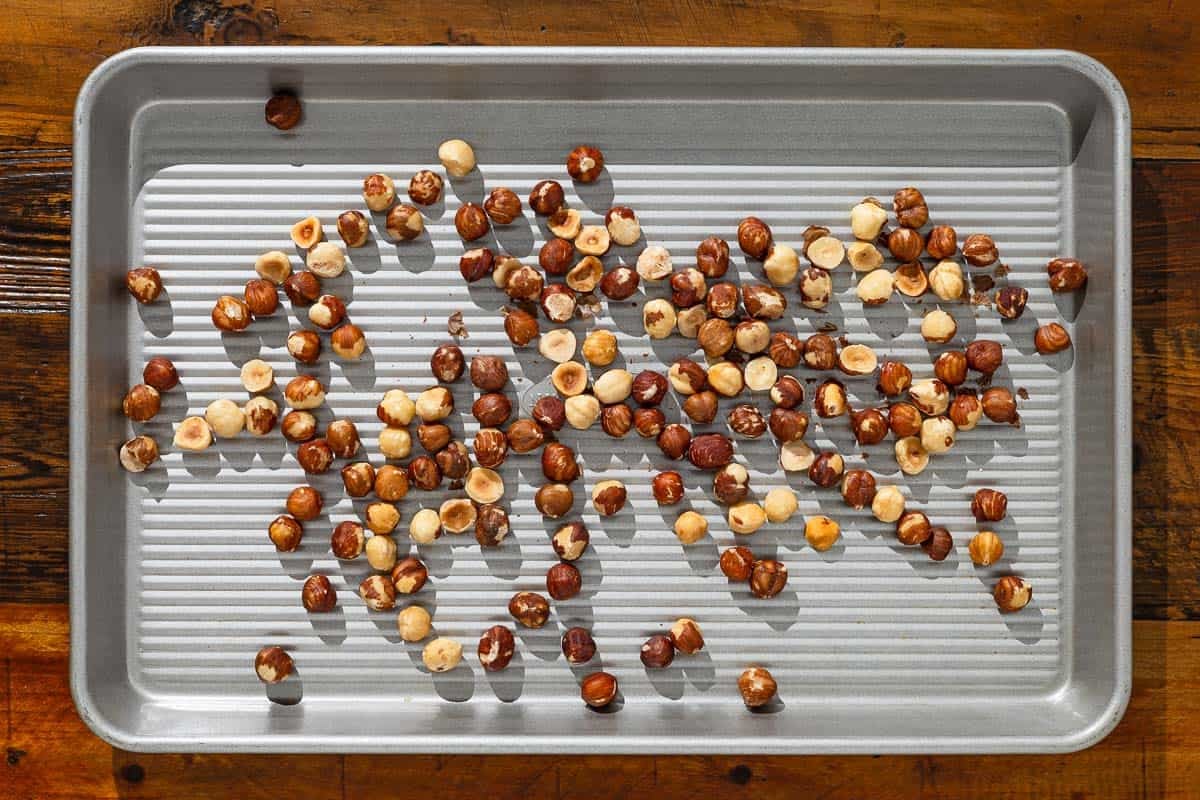
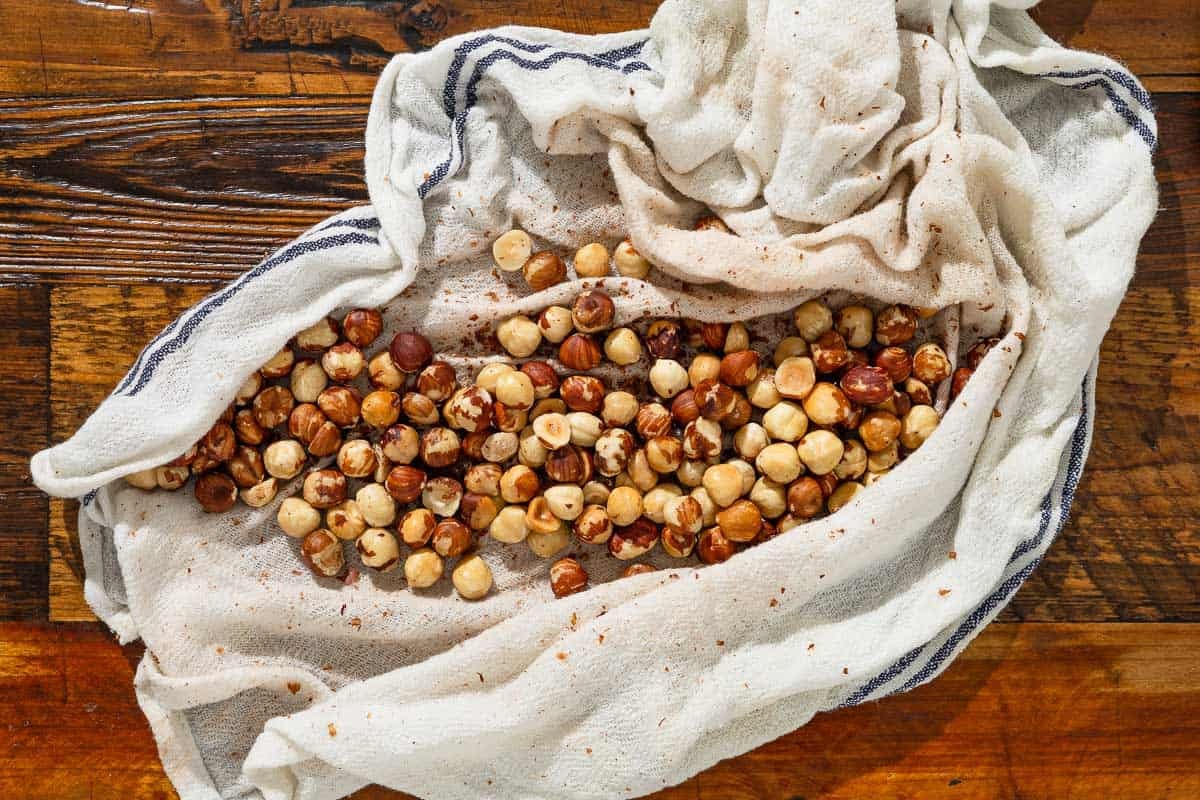
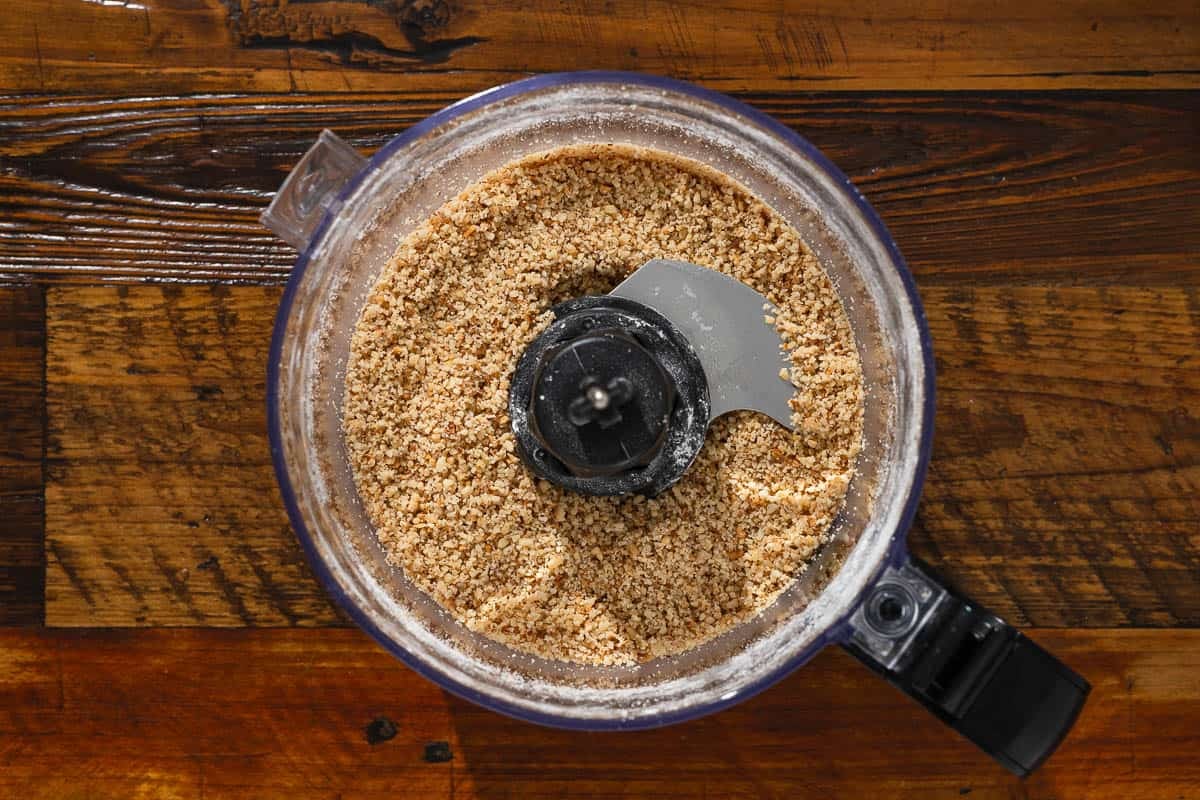
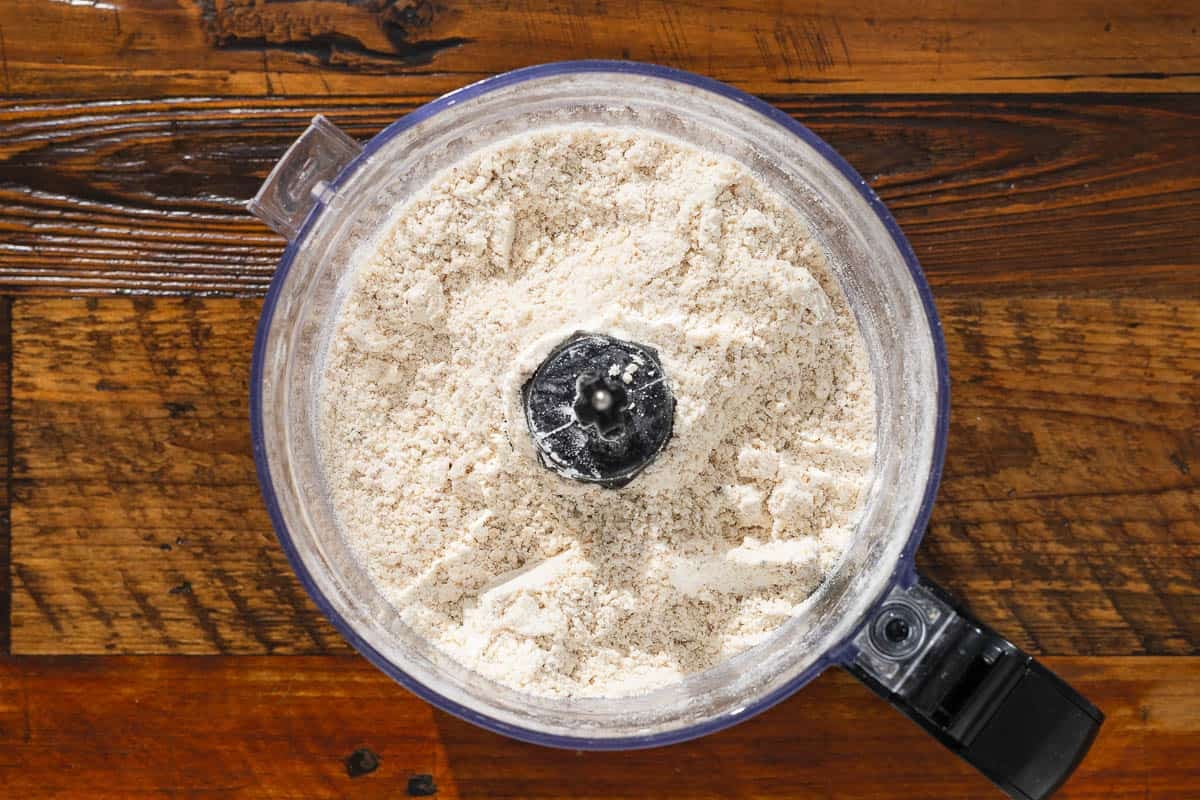
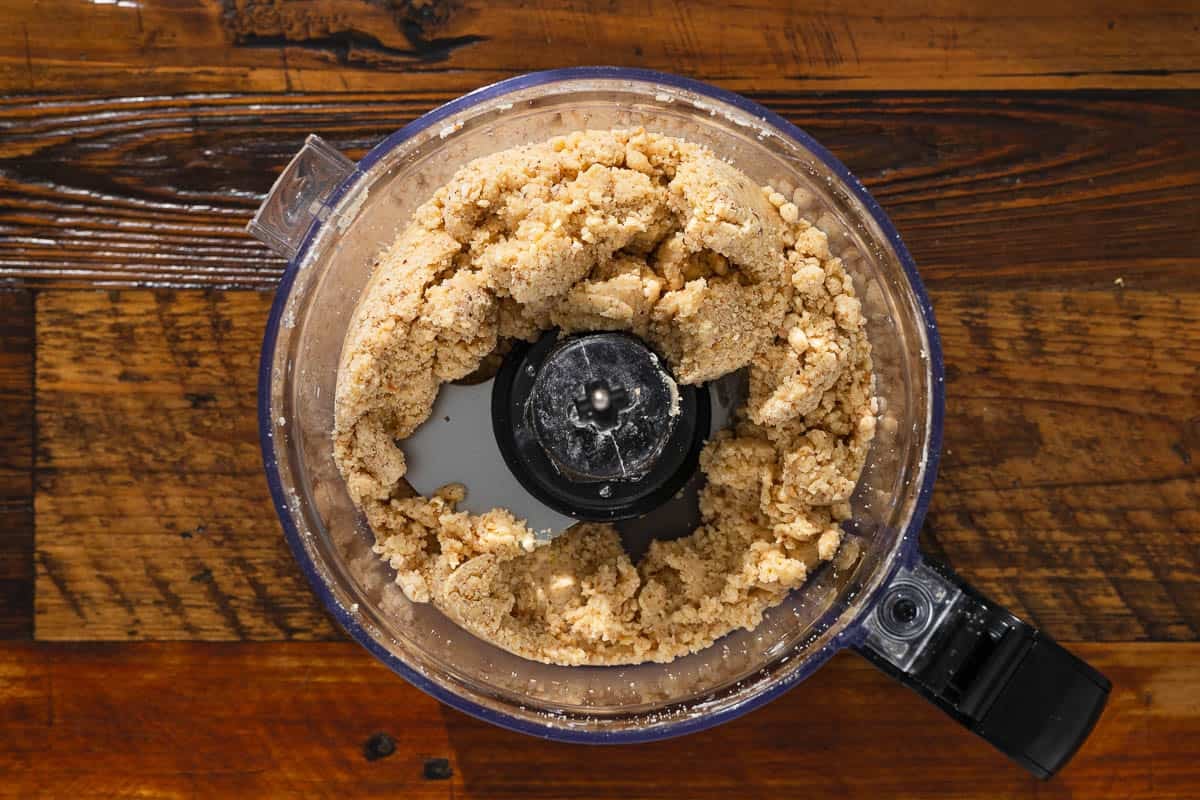
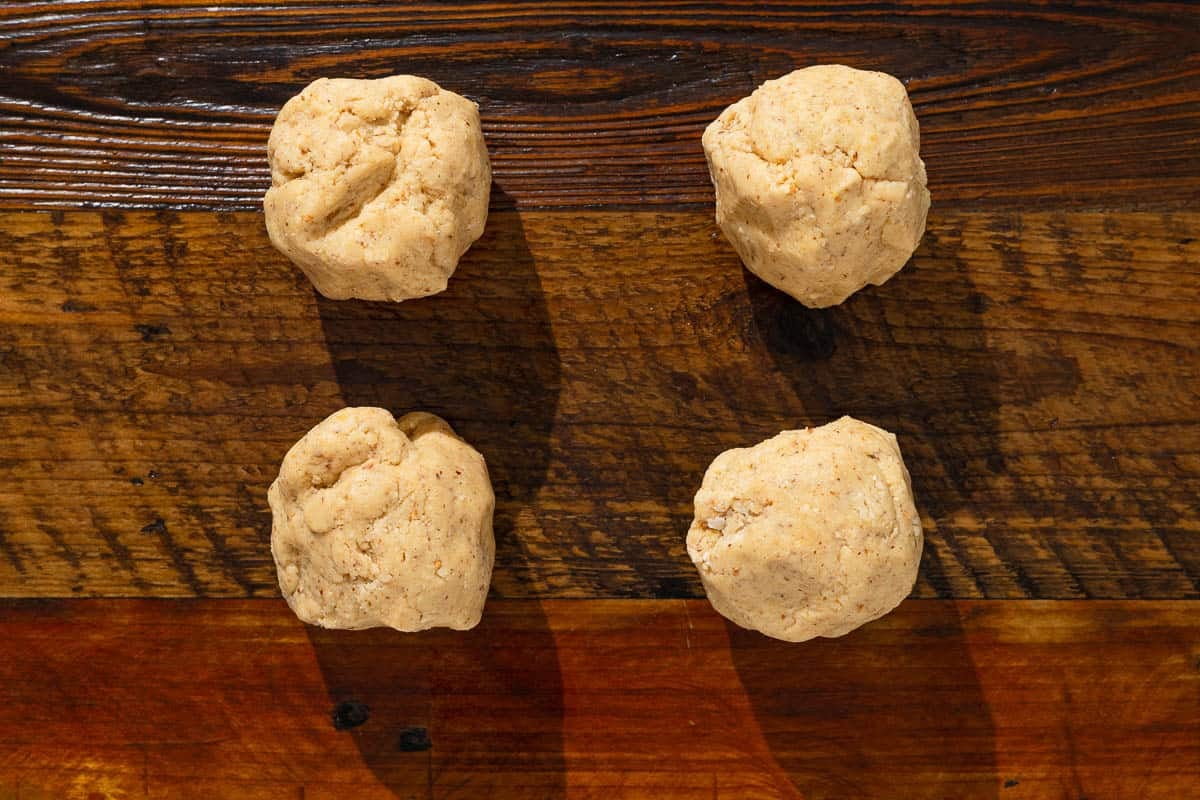
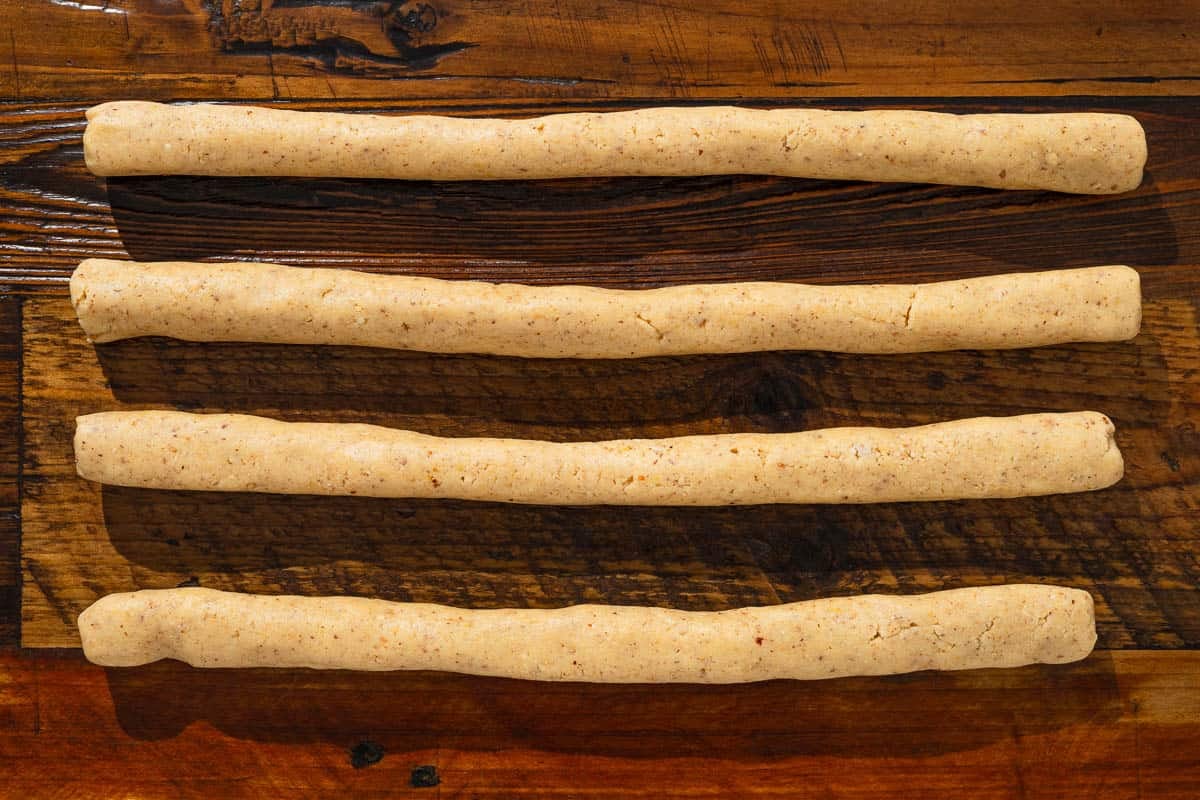
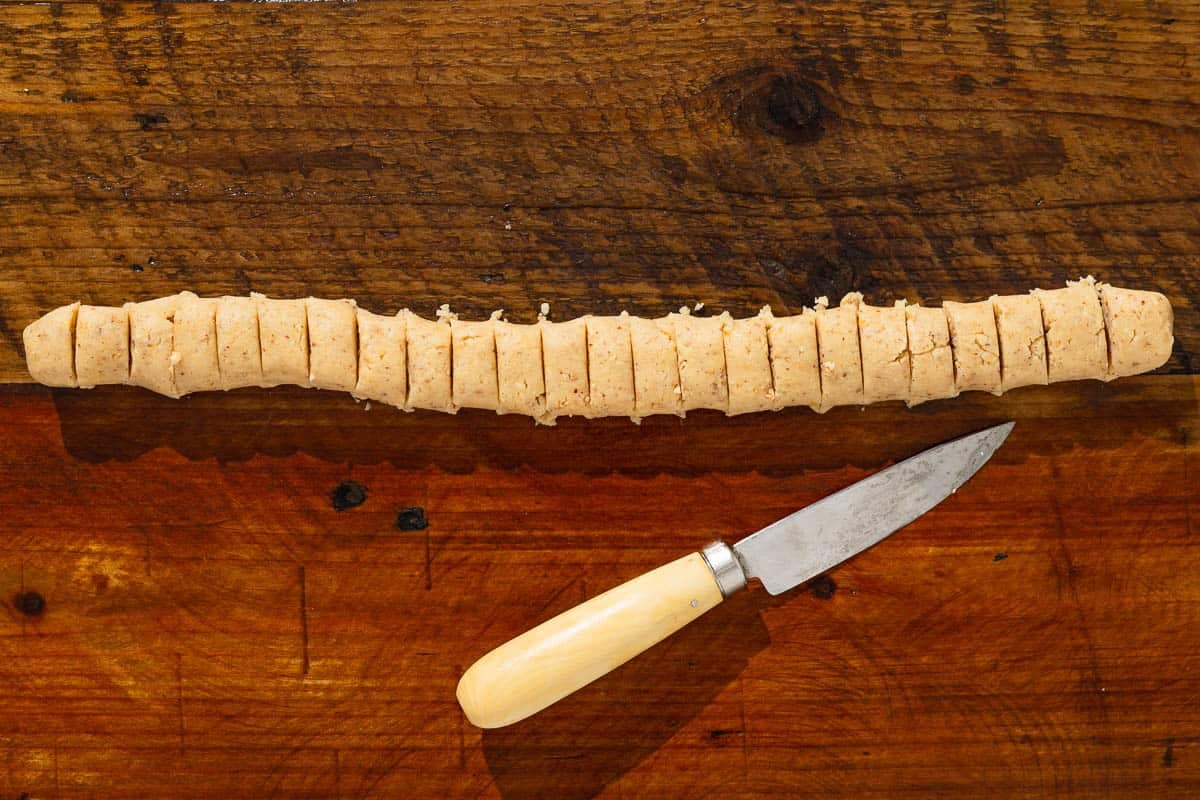
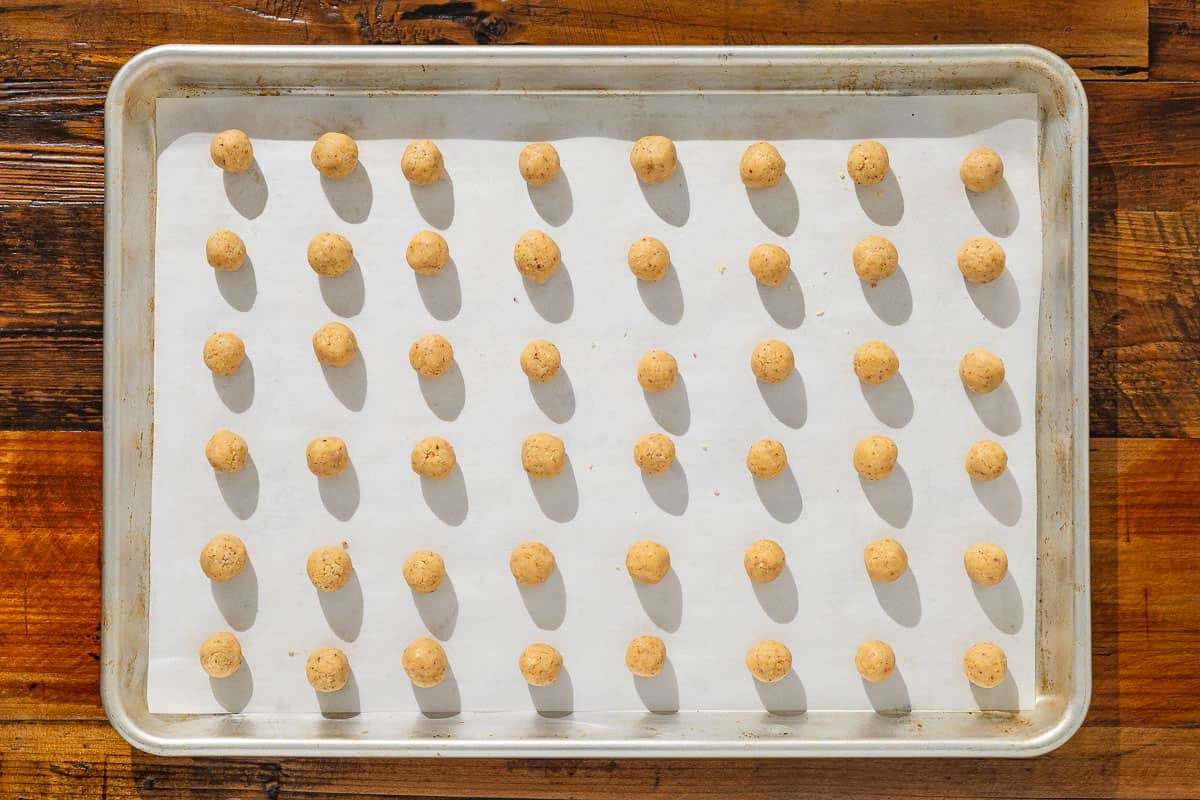
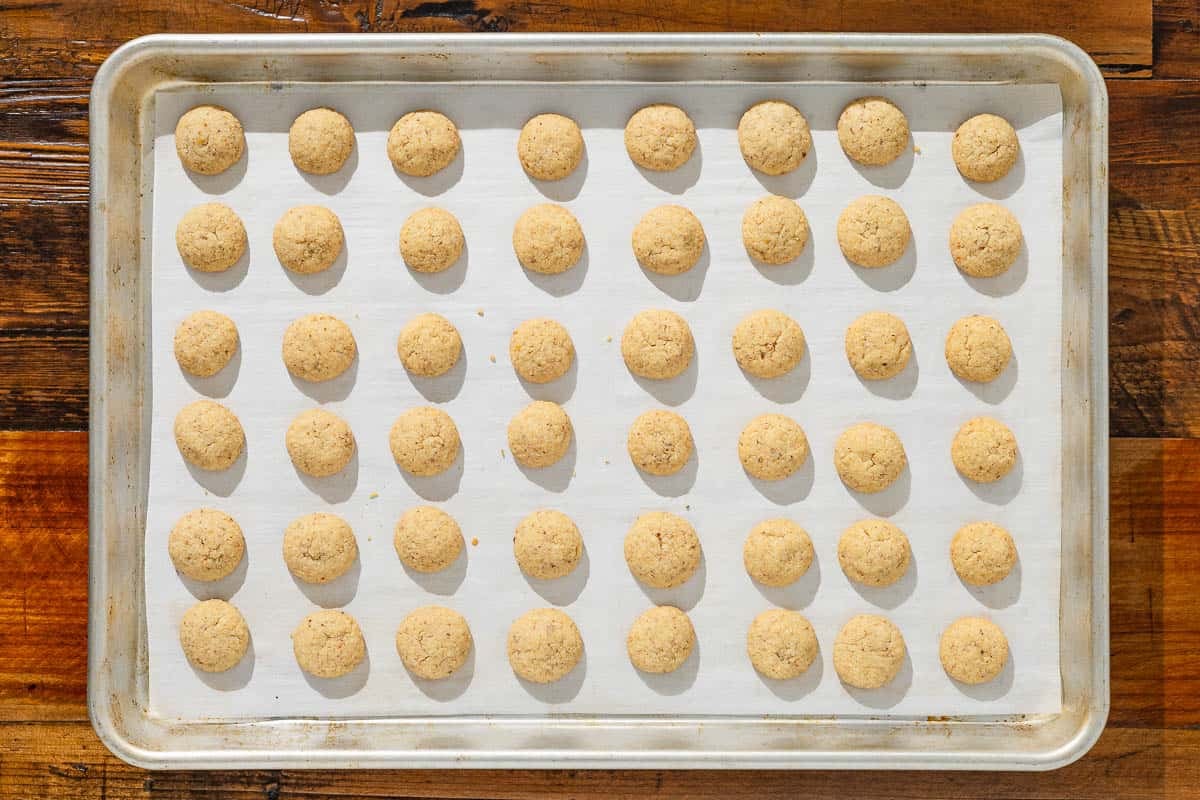
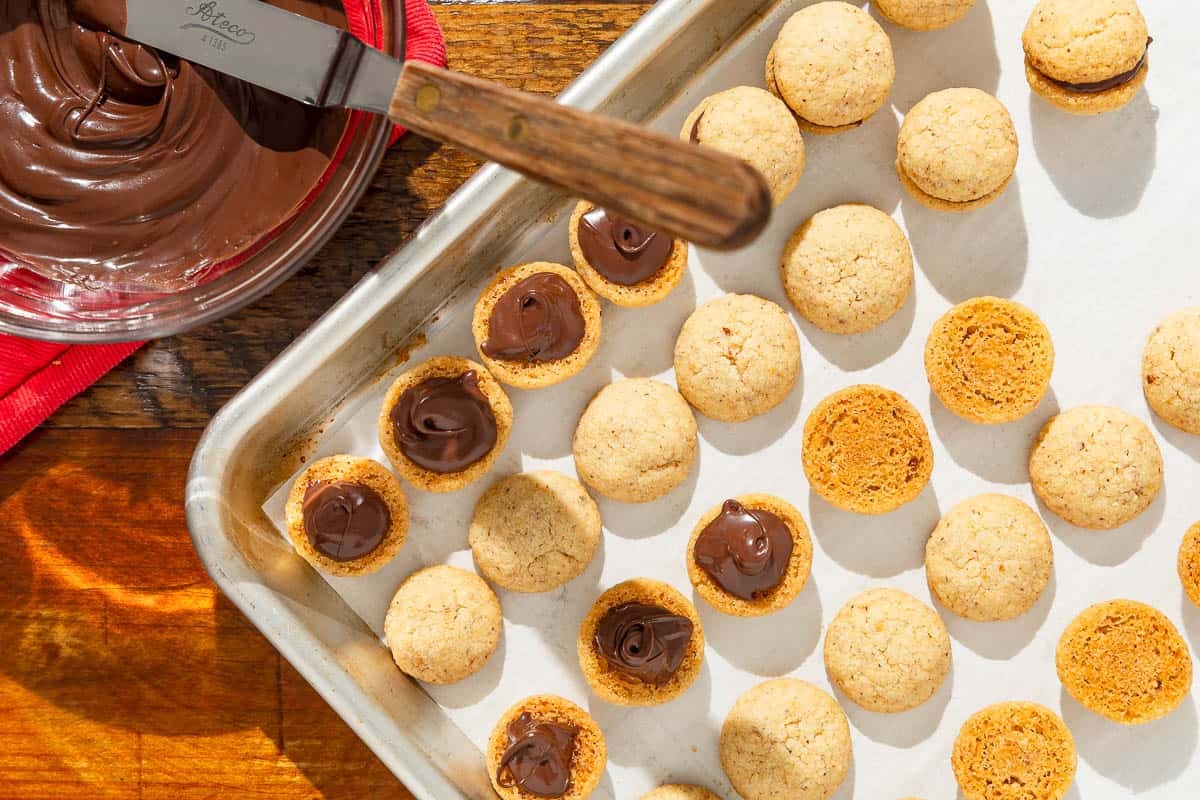
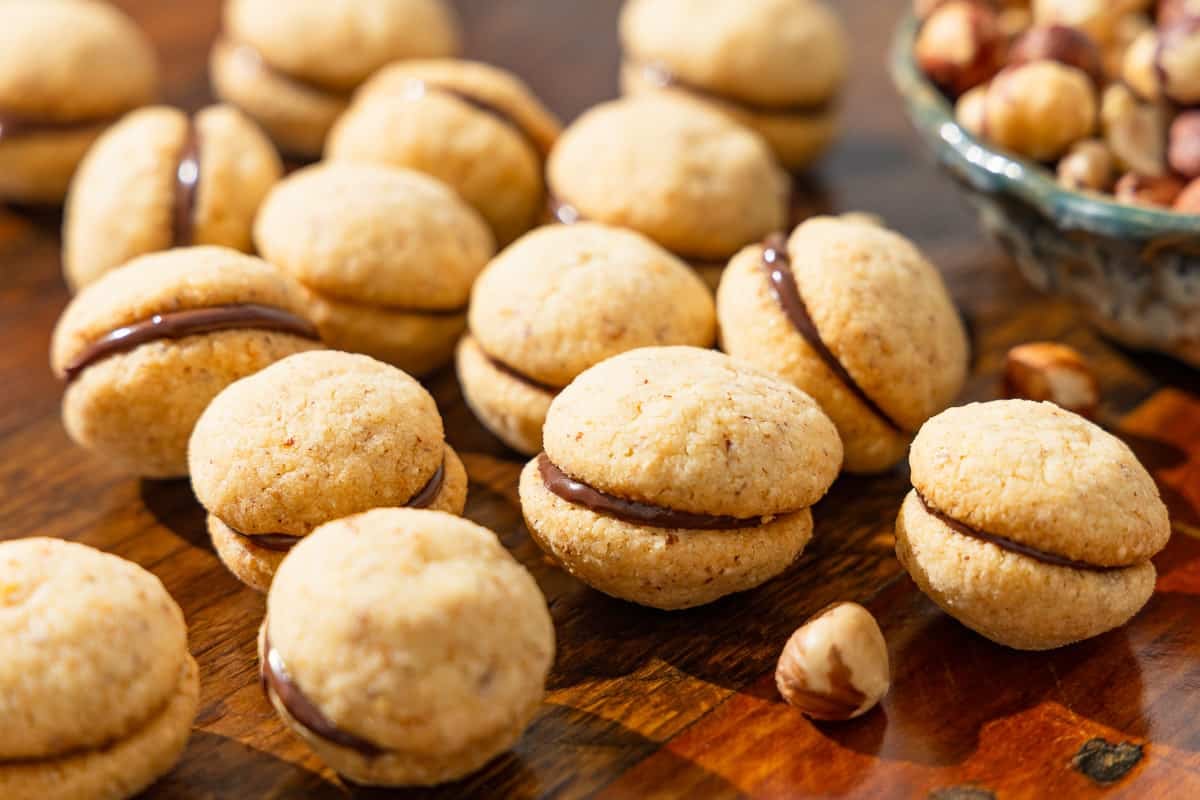




Great recipe and my wife loves them. I made a triple batch for family and neighbors and found a time saving hack. Instead of rolling logs and cutting them to dimension, I used a small melon baller. It made a flat side for chocolate and mating two together. Saved time, labor and made them consistent.
Made these last Christmas and they were a hit. They’ll make it to the table this year too if my son doesn’t eat them all. They’re worth the effort.
Can you use hazelnut flour? If so, how much would that be?
Hi, Alexandra. That may be possible, but it’s not something we’ve tested with this recipe.
Can you use Nutella in recipe instead of the melted chocolate?
Sure, Pam! You could give that a try!
I made these because they looked so good and boy was I correct. Now they’re everyone’s favourite cookies and I am getting lots of requests to make more. Such an excellent recipe.
Thanks for the great review, Derek! We appreciate it!
Wonderful marriage of hazelnuts and chocolate in an elegant crisp cookie. Using the food processor for a cookie was for me novel and effective, leaving little to clean up. I also would not have thought of adding lemon zest, but it melds well.
Thanks, Jim!
I’m certain I followed the recipe exactly, but they were completely burnt after a total of 12 minutes. I rotated the trays after 8 minutes and the bottoms were burning but the tops were very soft. I have a gas oven. Any idea why?
Hi Sarah- we too have a gas oven and I just baked these for the first time this morning without incident (I used convection setting, but rotating the pans is probably enough). I even extended bake by several minutes, as we live at 4800′ (if it matters without leavening). Give your oven temperature a quick check, but otherwise I recommend trying again.
Hi, these cookies need to be baked in lower temperature 300 -325. Otherwise they flatten out . They taste great !